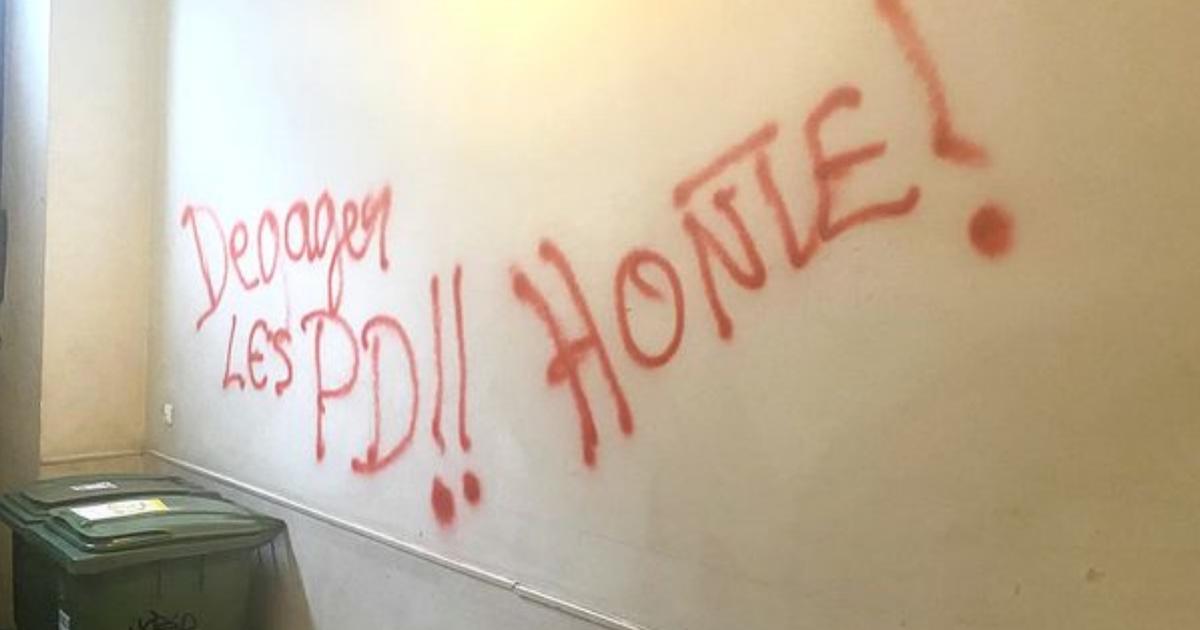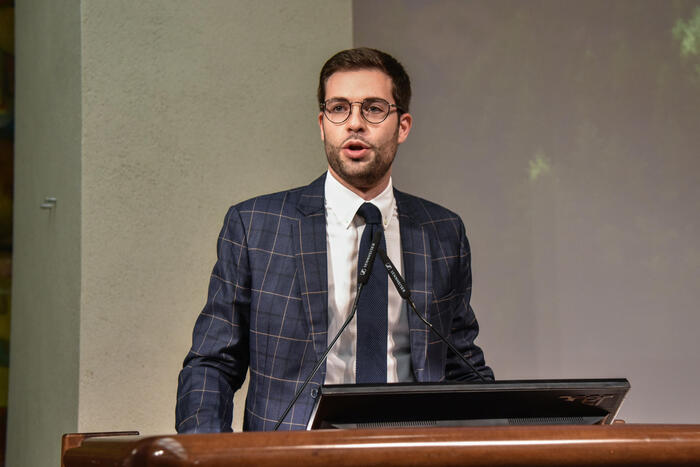Homophobic and transphobic attacks are part of everyday life
Created: 06/12/2022, 11:40 am
The rainbow flag is a sign against discrimination against queer people.
© Federico Gambarini/dpa/symbol image
Queer people and, last but not least, trans people are regularly bullied or attacked in Berlin.
The justice senator does not want to put up with it.
Berlin - Insults, disparagements, threats or physical violence: homosexual and transphobic attacks are part of everyday life in Berlin.
This is the result of the figures in the new “Monitoring Report on Transphobic and Homophobic Violence” presented by the Senate Department for Justice, Diversity and Anti-Discrimination on Monday.
According to their information, the number of crimes registered by the police in Berlin and directed against lesbians, gays, bisexuals, transgender and intersex people and other queer people (LSBTIQ*) has continued to rise.
456 cases were statistically recorded last year, and 377 in 2020.
The new monitoring report should help to illuminate the dark field in the area of homosexual and transphobic attacks and contribute to increasing the willingness to report and trust in government agencies, said Justice Senator Lena Kreck (left) when presenting the data.
"The more knowledge we have, the better we can decide how politics needs to adjust."
By far the most common are insults, which account for almost half of the offenses (48.5 percent).
13.2 percent of the cases involve bodily harm, 9.6 percent dangerous bodily harm.
The crimes reported to the police are often concentrated in nightlife and residential areas of the queer community.
A quarter of the offenses (24.8 percent) occurred in the Mitte district, one fifth each in Tempelhof-Schoeneberg (17.6 percent) and Friedrichshain-Kreuzberg (17.4 percent).
In less than half of all cases (44.3 percent), suspects could be identified in the period from 2010 to 2021.
The average proportion of men was 90 percent.
They are often multiple and repeat offenders: more than three quarters (75.9 percent) of the suspects identified were previously known to the police.
But even if suspects could be identified, criminal consequences are not the rule: In 40 percent of the cases, the proceedings were discontinued.
For the monitoring report, which focuses on anti-trans attacks, there was also a survey of trans people, i.e. people who do not feel they belong to the gender they were assigned at birth.
They confirm the statistical data: anti-trans insults, threats and targeted intimidation were described very frequently.
According to the justice administration, the monitoring report also serves as a diagnostic tool for previous measures to support trans people.
The report makes it clear that more trans-specific counseling services and anti-violence work are needed in Berlin and that existing structures need to be expanded accordingly.
"The patchwork of the consulting landscape must be designed more precisely," said Kreck.
At the same time, the knowledge about transgender in authorities and other institutions must increase through qualification measures in order to increase understanding for the concerns of trans people.
dpa















